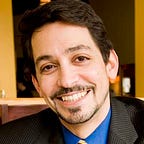Donald Trump was elected because America can’t think.
Donald Trump is going to be President of the United States beginning January 20, 2017. That fact surprised almost everyone, and everyone has an explanation. I’m not going to argue for or against any of those explanations since they all have some level of credibility. Nearly all of them, however, are symptoms of a bigger issue: failure of critical thinking.
Do you think Trump won because of fake news? People with critical thinking skills can spot fake news a mile away. Do you think Clinton lost because she didn’t campaign properly in Michigan or Wisconsin? Critical thinkers would have seen the problems in those states. Do you think that people in the rust belt were fooled by Trump’s falsehoods? If they had critical thinking skills, they would have seen through the bullshit.
Chances are you believe you know what “critical thinking” means. You probably believe you’re good at it. You might believe that other people aren’t as good at it as you are. Well, if you believe any of those things you are most likely wrong.
I’ve been learning about critical thinking for nearly ten years, and I still struggle to be good at it. I still make mistakes every day. I watch people I know to be brilliant fail at critical thinking multiple times every day. Why is that?
Here’s the fact so many intelligent people don’t know: Critical thinking is hard. It is not the natural state of our minds. Human beings are capable of thinking critically, but it is not our default thought pattern, any more than excellence in a sport is anyone’s default physical attribute. Success takes practice — hours and hours of practice. To think critically, you must work at it every day and know that you’ll fail every day. But you keep on trying.
Critical thinking isn’t about being right or wrong. It’s about being right and wrong. People with critical thinking skills are rarely sure about anything, and they are always willing to admit they were wrong in the face of new evidence. For critical thinkers, error isn’t something to be avoided — it’s just assumed. Like death and taxes, error is inevitable. Critical thinkers put effort into flushing it out so they can correct their thinking when they are wrong. Non-critical thinkers banish error; they spend their mental energy trying to prove why they’re not wrong, and dismiss any evidence that suggests they are mistaken.
Failing at critical thinking is easy. Most Americans can’t think critically, and the outcome of the 2016 presidential election is strong evidence for that statement. If you think you think critically, I have a test for you. There are ten statements below. If you disagree with any of them, your beliefs are not in line with the evidence, and you have failed at critical thinking. You need to spend some time studying the evidence — not just evidence that supports your beliefs, but evidence that contradicts your beliefs, too. Give it a try.
- Human activity like burning fossil fuels is very likely affecting the planet’s climate.
- Vaccines don’t cause autism and are one of humanity’s greatest health care advances.
- There is very little evidence that suggests “organic” foods are better for our health or for the environment; they just cost a lot more.
- The overwhelming majority of evidence indicates that genetically modified organisms (GMOs) are safe for people and the environment.
- Taking vitamins and other supplements is not good for otherwise healthy people, and may cause harm.
- Intelligent extraterrestrial life forms do not regularly visit earth.
- There is no large non-human bipedal ape inhabiting dense forests in parts of the United States.
- The terrorist attacks on September 11, 2001, were perpetrated by religious extremists; the U.S. government was not involved in any way.
- President Barack Obama was born in the United States and is not Muslim.
- Human beings and all other life forms on earth are the result of millions of years of biological evolution.
Chances are, there’s something on that list that is contrary to what you believe. When I started my journey into critical thinking back in 2006, I believed many of them. Only after several years of critical thinking practice was I able to accept that I was wrong, and I changed my beliefs to match the evidence.
So, if you don’t want to be fooled by politicians and you don’t want to waste money on products that don’t do any good (and may hurt you), pick one or two items from the list that contradict your beliefs and study the evidence. Be open-minded to the possibility that you are wrong. Shape your beliefs based on evidence. Don’t select evidence that fits your beliefs.
If you do that, you’ll be taking the first small step toward critical thinking. If you are like me, it’ll be a step down a path you will want to stay on for the rest of your life.
